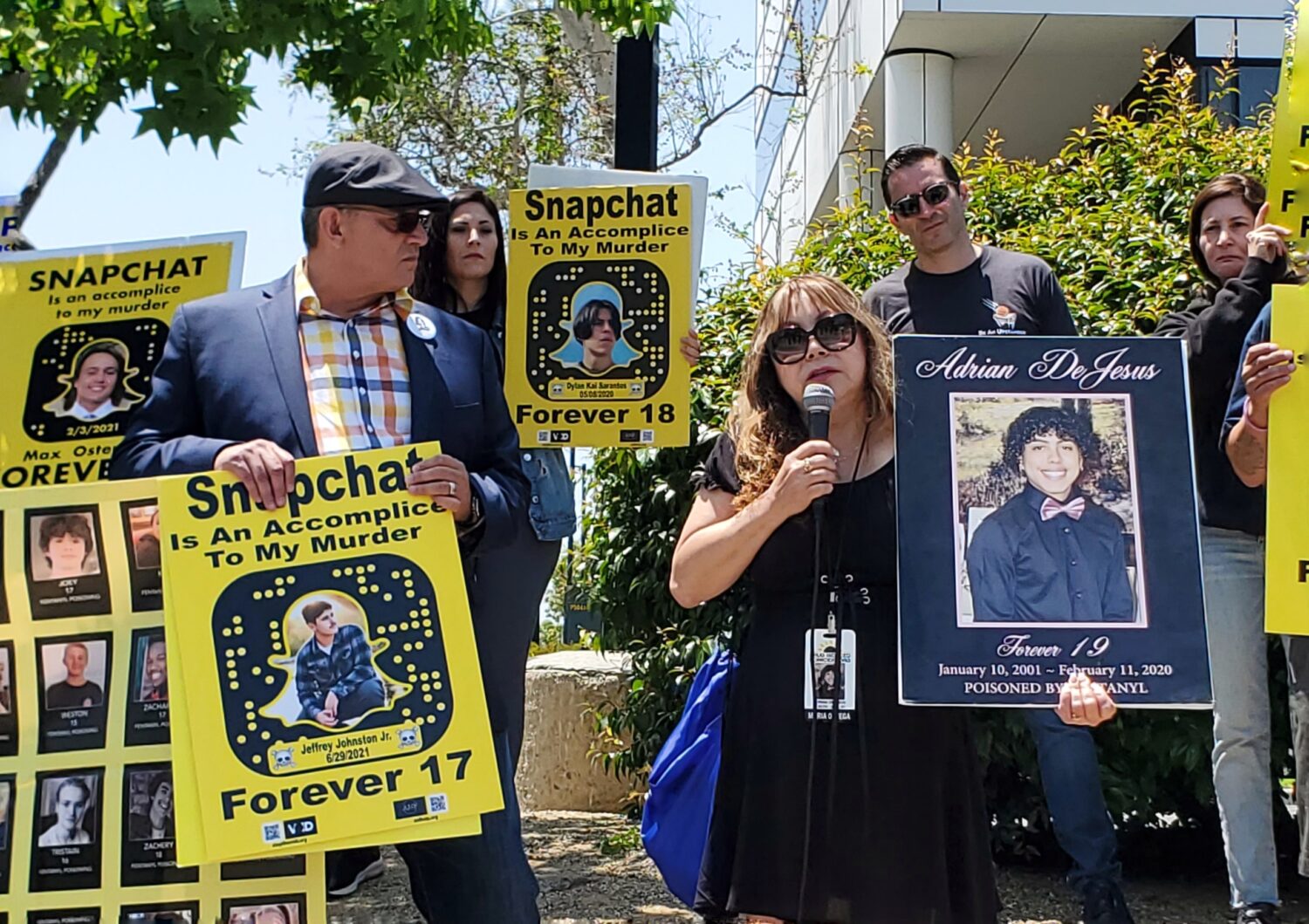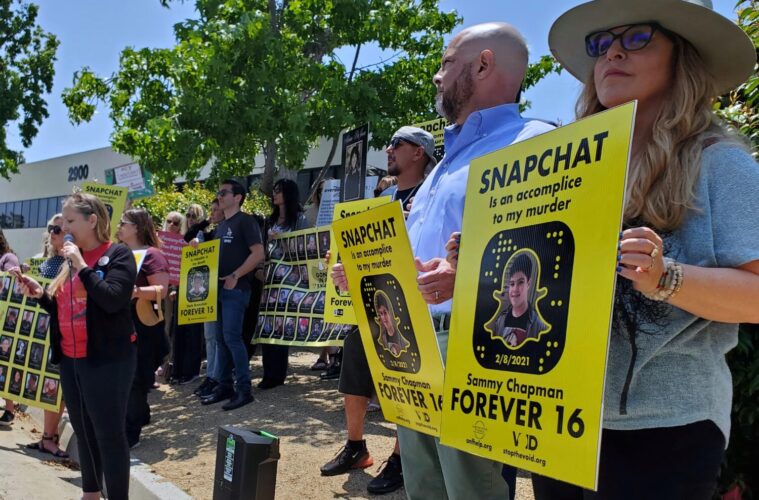Dozens of parents rallied outside the Snapchat offices in Santa Monica Friday, blaming the app for their children’s deaths and demanding changes to core features.
Holding photos of their children, the protesting parents alleged that their kids, often teens, purchased drugs from users on Snapchat, leading to eventual fentanyl overdose deaths.
“Do they really want to be the company that’s known for dead children?” Amy Neville, one of the protest organizers from Laguna Niguel, told L.A. Weekly. “They have the power to change. They can set an amazing example to other social media companies if they did make that change.”
After the overdose death of her son in June 2020, Amy started the Alexander Neville Foundation, named after her son.
Neville said her son’s “inquisitive nature” unfortunately led him to drug use, using Snapchat to communicate with the dealer. It was June 23, 2020, that Amy made her way to Alexander’s room, where she found him lying on his beanbag chair, pale-faced and unresponsive. She later found that Alexander was using what he thought was oxycontin, but as she and many of the other parents at the protest learned, the drugs were laced with fentanyl.
Now, Neville has made it her life’s purpose to raise awareness of where kids are obtaining drugs like fentanyl and warn parents that the drug crisis can affect anyone.

Maria Ortega speaks on the overdose death of her son Adrian DeJesus during a protest outside of Snapchat HQ in Santa Monica. (Isai Rocha/L.A. Weekly)
Snapchat has unique features compared to some of the more widely used social media apps, with one being disappearing messages. The ability to send a message that may not be saved within the app, or a user’s phone has the parents worried about how communications can lead to illegal activity.
The other feature that troubled the protesters was the Snapchat Map, which allows a user’s approximate location to be pinpointed at any given time.
When asked about the alleged overdose deaths and the connections being made to Snapchat, Snap Inc. attributed the problem to an overdose epidemic that grew during the pandemic years.
“Fentanyl is finding its way into every major city across America, and our hearts go out to the thousands of families impacted by this growing national crisis,” a Snap Inc. spokesperson said in a statement to L.A. Weekly. “At Snap, we are working hard to stop dealers from abusing our platform. We do this by employing certain technologies, working closely with law enforcement, collaborating with other technology companies, and by having a zero-tolerance policy where we shut off the infringer’s account.”
In late 2022, the U.S. Department of Justice (DOJ) began investigating possible fentanyl sales through Snapchat and other commonly used apps. That year, the DOJ also recognized May 9 as National Fentanyl Awareness Day, with Snap being a founding partner as one of its attempts at being proactive toward the issue.
On May 9 of this year, Snapchat added a filter to the app, which brought attention to the dangers surrounding fentanyl. The social media company also said it had worked with law enforcement, teaching them how Snapchat works and how data can be retrieved when investigating criminal activity.
Snap also said it began “sharing patterns and signals” with Meta Inc., as the two social media platforms say they made attempts to remove accounts connected to drug content, or dealing.
“If they have a zero-tolerance policy, why are kids still dying?” Neville said in response to Snap’s statement. “They might not ‘allow’ it to happen, but it’s happening right in front of their very eyes.”
The Alexander Neville Foundation is part of a multi-family lawsuit put forth by the Social Media Victims Law Center in 2021.
“Snap knows. Us being out here isn’t going to tell them anything they don’t know,” Neville said. “But the media comes out, and hopefully some family can read this and say, ‘Oh, wait a second. I need to go have a conversation with my kid now.'”
Advertising disclosure: We may receive compensation for some of the links in our stories. Thank you for supporting LA Weekly and our advertisers.

